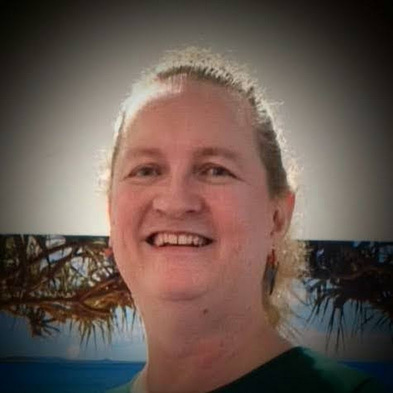about
About Curious Efficiency
About the site
Curious Efficiency is the intermittently updated personal website of Alyssa Coghlan, CPython core developer, PSF Fellow, software development toolsmith, cognitive science dabbler, and cynical idealist.
The main portion of the site is generated via Nikola, hosted on GitHub Pages, and also under source control on GitHub (the repo layout is a bit odd, since the source code wasn't originally on GitHub, and the hosting moved to GitHub Pages first, with the source repository following much later).
Python specific technical writing tends to end up on the ReadTheDocs powered Python Notes subsite.
About the name
Curious Efficiency is actually a reframing of my original blog title, Boredom & Laziness - the original boredomandlaziness.org URLs now redirect here. The original site blurb on Boredom & Laziness read as follows:
There are a couple of very, very scary things in this world.
The first is a bored human. Bored humans have time to indulge their curiosity, with potentially amazing results.
The second is a lazy human. Lazy humans can be quite inventive when it comes to figuring out how to do less work.
So, here's to boredom & laziness - two of the prime movers in human progress!
"Curious Efficiency" is really just a nicer way of referring to the same concept.
This post goes into some additional detail on the concepts that inspired the naming, both the original form, and the current more conventionally acceptable phrasing.
Selected articles, presentations and interviews
Selected Python Enhancement Proposals:
PEP 338: Executing modules as scripts (aka "the -m switch")
PEP 343: The "with" statement (co-authored with Guido van Rossum)
PEP 394: The "python" command on UNIX-like systems (co-authored with Kerrick Staley)
PEP 414: Explicit Unicode Literal for Python 3.3 (co-authored with Armin Ronacher)
PEP 432 (superseded): Simplifying the CPython interpreter startup sequence
PEP 440: Version Identification and Dependency Specification (co-authored with Donald Stufft)
PEP 453: Bootstrapping pip in Python installations (co-authored with Donald Stufft)
PEP 477: Backport ensurepip to Python 2.7 (co-authored with Donald Stufft)
PEP 489: Multi-phase extension module initialisation (co-authored with Petr Viktorin and Stefan Behnel)
PEP 493: HTTPS verification migration tools for Python 2.7 (co-authored with Robert Kuska and Marc-Andre Lemburg)
PEP 501 (superseded): General purpose template literal strings (co-authored with Nick Humrich)
PEP 538: Coercing the legacy C locale to a UTF-8 based locale
PEP 565: Show DeprecationWarning in __main__
PEP 558 (superseded): Defined semantics for locals()
PEP 573: Module State Access from C Extension Methods (co-authored with Petr Viktorin, Eric Snow, and Marcel Plch)
PEP 587: Python Initialization Configuration (co-authored with Victor Stinner)
PEP 628: Add math.tau
Selected Python related presentations (video links):
-
Opportunities & Challenges in Open Collaboration
-
Contributors, Colleagues, Clients & Customers: Sustaining Open Source Communities
-
Python Beyond (C)Python (Adventures in Software Distribution):
-
Python Packaging:
Python Packaging 2.0: Playing Well With Others (linux.conf.au 2014)
Nobody Expects the Python Packaging Authority (PyCon Australia 2013)
-
CPython Core Development:
Here be dragons: some elegant & ugly hacks in CPython (PyCon Australia 2014)
How Python Evolves (PyCon Australia 2011)
Selected Python related articles and presentation reviews:
Linux Weekly News article on my Python Packaging 2.0 presentation at linux.conf.au 2014
Selected software design, development and deployment related presentations and articles:
Front-end Integration Testing with Splinter (PyCon Australia 2017)
Tracking package updates with release-monitoring.org (LWN article on my linux.conf.au 2017 presentation)
What problem does it solve? (on constructively criticising API designs)
Path Dependent Development (PyCon Australia 2012)
Full Stack Integration Testing with Beaker (linux.conf.au 2014)
Selected community management related articles and interviews:
Abusing Contributors is not OK (reflecting on some comments from Linus Torvalds during his plenary session at linux.conf.au 2015)
opensource.com interview on my joining the PSF board of directors
Podcast appearances (in reverse chronological order):
Free as in Freedom (with hosts Karen Sandler & Bradley M. Kuhn, recorded January 2015)
Pragmatic (with host John Chidgey, recorded August 2014)
-
From Python Import Podcast (with hosts Mike Pirnat & Dave Noyes and fellow guest Alex Gaynor, recorded March 2014)
Historical note of potential interest: I consider this discussion between Alex and myself to be one of the key events on the road to PEP 466's backport of Python 3 network security features to the Python 2.7 series, and PEP 476's switch to verifying HTTPS certificates by default in Python 2.7.9+ and 3.4.3+
Radio Free Python (with host Larry Hastings, recorded February 2012)
